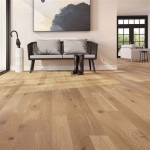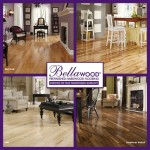Linoleum Flooring Tiles: A Comprehensive Guide
Linoleum flooring tiles represent a durable and versatile flooring option suitable for various residential and commercial environments. Composed of natural materials, linoleum offers a unique blend of sustainability, resilience, and aesthetic appeal. The following details the composition, benefits, installation, maintenance, and considerations associated with linoleum flooring tiles, providing a comprehensive overview for prospective buyers and users.
Linoleum's primary components include linseed oil, derived from flax seeds; rosin, a resin extracted from pine trees; wood flour, finely ground wood particles; cork dust, a byproduct of cork harvesting; mineral fillers, such as limestone; and pigments for color. These ingredients are combined and calendered onto a jute backing. The result is a dense, resilient sheet that is then cut into tiles of various sizes and shapes. The natural composition of linoleum contributes to its inherent antibacterial and antistatic properties, making it a favorable choice for health-conscious environments.
The Benefits of Linoleum Flooring Tiles
Linoleum flooring tiles offer a range of advantages over other flooring materials, making them a popular choice for both residential and commercial applications. These benefits stem from the unique composition and manufacturing process of linoleum, contributing to its longevity and overall performance.
Durability and Longevity: One of the most significant benefits of linoleum is its exceptional durability. Linoleum is known for its ability to withstand heavy foot traffic, making it suitable for high-traffic areas such as kitchens, hallways, and commercial spaces. The color of linoleum is embedded throughout the material, rather than being a surface layer. This through-body construction means that scratches and scuffs are less noticeable, as the underlying material is the same color. With proper maintenance, linoleum flooring can last for several decades, providing a long-term flooring solution.
Sustainability: Linoleum is considered a sustainable flooring option due to its use of renewable and biodegradable materials. Linseed oil, rosin, wood flour, and cork dust are all derived from renewable sources, reducing the environmental impact compared to synthetic flooring materials like vinyl. The jute backing is also a natural fiber. Furthermore, at the end of its lifespan, linoleum can be composted in industrial composting facilities, further minimizing its environmental footprint. The sustainable nature of linoleum aligns with the growing demand for eco-friendly building materials.
Design Versatility: Linoleum flooring tiles are available in a wide array of colors, patterns, and sizes, offering considerable design flexibility. Manufacturers can create intricate designs and patterns using modern technology, allowing for customized flooring solutions. The tiles can be arranged in various configurations, creating unique visual effects. This versatility makes linoleum suitable for both contemporary and traditional design schemes. In addition to standard square and rectangular tiles, linoleum is also available in plank formats, providing even more design options.
Comfort and Sound Absorption: Linoleum provides a degree of comfort underfoot due to its inherent resilience. It offers a slightly softer walking surface compared to hard flooring materials like ceramic tile or concrete. Additionally, linoleum possesses sound-absorbing properties, reducing noise transmission and creating a quieter environment. This is particularly beneficial in multi-story buildings or spaces where noise reduction is desired.
Maintenance and Cleaning: Linoleum is relatively easy to maintain and clean. Regular sweeping or vacuuming is sufficient to remove dirt and debris. For deeper cleaning, a damp mop with a pH-neutral cleaner is recommended. Avoid using harsh chemicals or abrasive cleaners, as these can damage the surface of the linoleum. Periodic application of a linoleum-specific floor polish can help to maintain the shine and protect the surface from wear.
Installation of Linoleum Flooring Tiles
Proper installation is critical to the performance and longevity of linoleum flooring tiles. This process typically involves several key steps, including subfloor preparation, tile layout, adhesive application, and finishing.
Subfloor Preparation: The subfloor must be clean, level, and dry before installing linoleum flooring tiles. Any imperfections in the subfloor, such as cracks, holes, or unevenness, must be addressed to ensure a smooth and stable surface for the tiles. Moisture testing is essential to verify that the subfloor is within acceptable moisture levels. Depending on the subfloor material (e.g., concrete, plywood), different preparation methods may be required. For concrete subfloors, self-leveling compounds may be needed to achieve a perfectly level surface. For wood subfloors, plywood underlayment may be necessary to provide a stable and uniform base.
Tile Layout: Before applying adhesive, it is important to plan the layout of the linoleum tiles to achieve a balanced and aesthetically pleasing result. Start by finding the center point of the room and dry-laying the tiles to determine the best arrangement. Consider the size and shape of the room, as well as any architectural features that may affect the tile layout. Ensure that the tiles are aligned properly and that there are no small or awkward cuts along the edges of the room. Adjust the layout as needed to minimize waste and achieve a professional-looking finish.
Adhesive Application: The adhesive used to install linoleum flooring tiles must be specifically designed for this purpose. Follow the manufacturer's instructions for adhesive application, paying attention to the recommended spread rate and open time. Apply the adhesive evenly to the subfloor using a notched trowel, ensuring that the notches are oriented in the correct direction. Work in small sections to prevent the adhesive from drying out before the tiles are laid. Carefully position each tile according to the planned layout, pressing it firmly into the adhesive to ensure full contact. Use a roller to further compress the tiles and remove any air pockets.
Finishing: After the adhesive has cured, clean the surface of the linoleum flooring tiles to remove any excess adhesive or debris. Inspect the seams between the tiles and address any gaps or imperfections. Apply a sealant to the edges of the room to prevent moisture from seeping under the tiles. Allow the sealant to dry completely before using the floor. For enhanced protection and shine, apply a linoleum-specific floor polish according to the manufacturer's instructions.
Considerations When Choosing Linoleum Flooring Tiles
Selecting the right linoleum flooring tiles involves careful consideration of several factors, including cost, design options, maintenance requirements, and environmental impact. Evaluating these aspects will help ensure that the chosen flooring meets the specific needs and preferences of the user.
Cost: The cost of linoleum flooring tiles can vary depending on the quality, design, and manufacturer. While linoleum may be more expensive than some other flooring options, such as vinyl, its durability and longevity can make it a more cost-effective choice in the long run. Consider the total cost of installation, including the cost of the tiles, adhesive, subfloor preparation, and labor. Obtain quotes from multiple suppliers and installers to compare prices and ensure that you are getting the best value for your money.
Design Options: Linoleum flooring tiles are available in a wide range of colors, patterns, and sizes, offering considerable design flexibility. Consider the overall aesthetic of the space and choose tiles that complement the existing decor. Pay attention to the color palette, pattern complexity, and tile size to create the desired visual effect. Order samples of different tiles to see how they look in the actual space before making a final decision. Consider custom designs or patterns if you have specific design requirements.
Maintenance Requirements: While linoleum is relatively easy to maintain, it does require regular cleaning and occasional polishing to keep it looking its best. Be prepared to sweep or vacuum the floor regularly to remove dirt and debris. Use a pH-neutral cleaner and a damp mop for deeper cleaning. Avoid using harsh chemicals or abrasive cleaners, as these can damage the surface of the linoleum. Periodically apply a linoleum-specific floor polish to maintain the shine and protect the surface from wear. Consider the amount of time and effort required to maintain the floor when making your selection.
Environmental Impact: Linoleum is a sustainable flooring option due to its use of renewable and biodegradable materials. If environmental considerations are important, look for linoleum tiles that are certified by reputable organizations, such as the Green Building Council. Consider the environmental impact of the manufacturing process, as well as the disposal of the tiles at the end of their lifespan. Choose linoleum tiles that are made with sustainable practices and that can be recycled or composted.
Acclimation: It is imperative to acclimate linoleum tiles to the environment they will be installed in for several days prior to installation. This allows the material to adjust to the temperature and humidity of the space, minimizing the risk of expansion or contraction after installation. Failure to properly acclimate the tiles can lead to problems such as buckling or gapping.
Seam Treatment: While linoleum tiles are generally installed with tight seams, it is still recommended to seal the seams in areas that are prone to moisture, such as bathrooms and kitchens. This helps to prevent water from seeping under the tiles and damaging the subfloor. Use a sealant that is specifically designed for linoleum and follow the manufacturer's instructions for application.
By carefully considering these factors, individuals can make an informed decision when choosing linoleum flooring tiles, ensuring that the selected flooring meets their specific needs and preferences while providing a durable, sustainable, and aesthetically pleasing flooring solution for years to come.

Vinyls Vs Linoleum Flooring Major Differences Pros Cons And Costs Forbes Home

Linoleum Flooring Residential Commercial Tile Planks Sheet Panel

Is Linoleum Flooring Easy To Install

Lino Flooring 10 Best Linoleum Ideas

What Is The Difference Between Vinyl And Linoleum Flooring

Top Linoleum Supply And Installation Services In Vancouver Bc Floors Flooring

A 2024 Guide To Linoleum Flooring And Why Designers Love It

Tile Vs Linoleum The Pros Cons Bath Granite Denver

How To Paint Linoleum Flooring The Honeycomb Home

Sheet Vinyl Flooring Linoleum In Moroccan Tile Effect Pattern Arabian Cocoa
Related Posts








